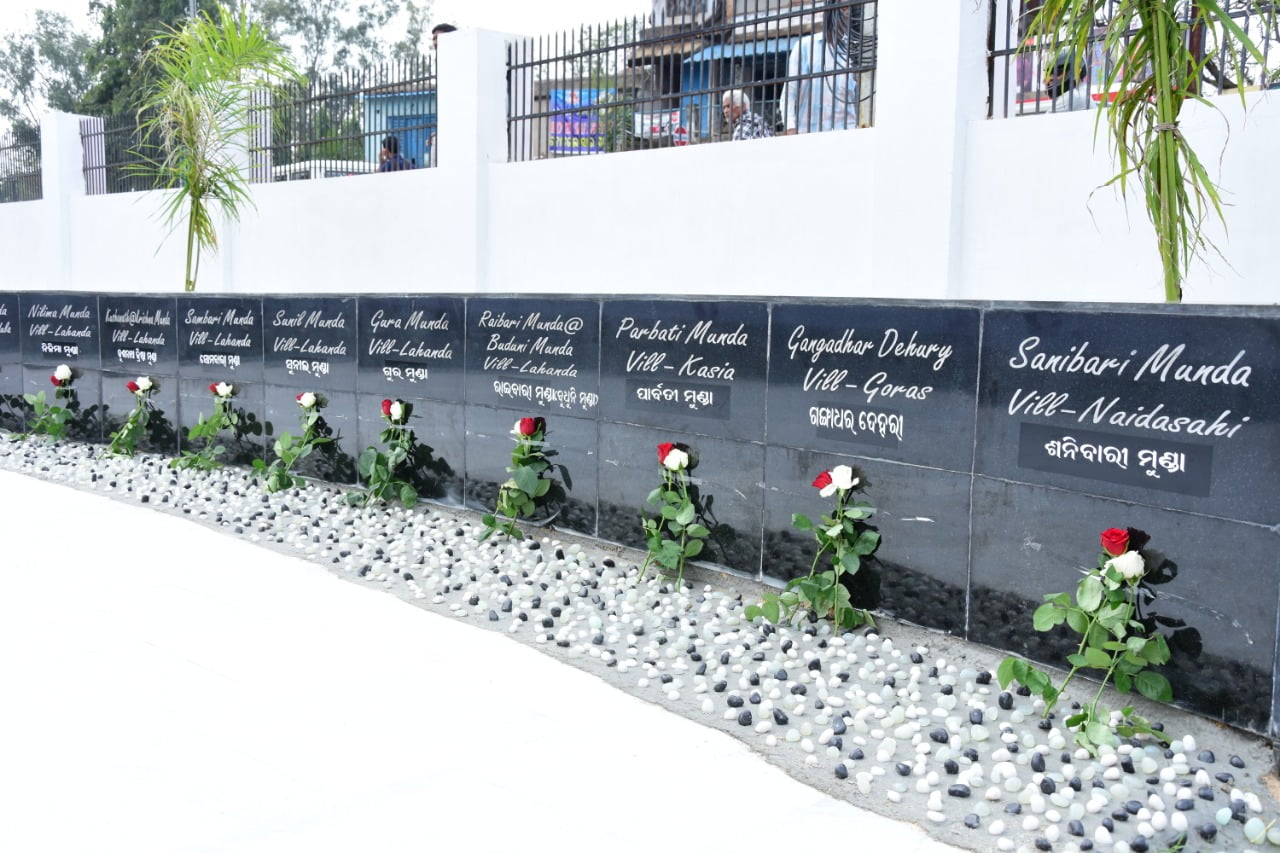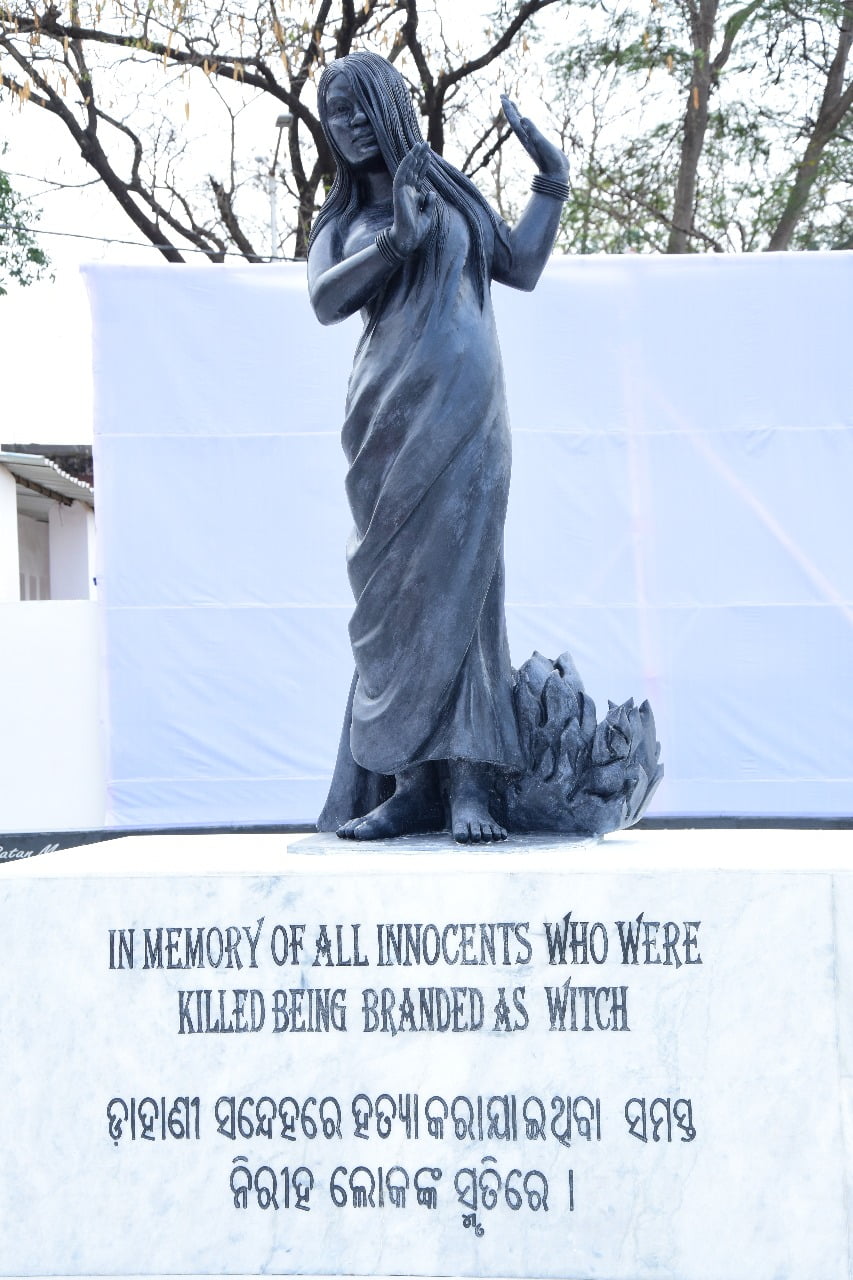Bhubaneswar: The inauguration of a memorial dedicated to witch-hunting victims, the world’s first, on Wednesday is evidence of the enormity of the social evil in the state. Sorcery and witch chanting are still rampant in Odisha despite The Odisha Prevention of Witch Hunting Act 2013, which entails penalty and punishment for practising, provoking and abetting witchcraft.
The inhuman practice of witch-hunting still prevails in some states of India like Jharkhand, Odisha, Chhatisgarh, Assam etc. mainly in the tribal areas. Barring some countries of Africa and India, other parts of the world are more or less free from this social evil since long.
In the latest incident in Odisha, three members of a family were killed by unidentified men on suspicion of practising witchcraft at Ukkamba village under Ramanguda block in Rayagada district on Monday.
In the last week of January, police in tribal-dominated district of Sundargarh arrested six people on charges of brutally killing a woman and her four children on grounds that she was a “witch” and practised “black magic”.
Odisha Hetubadi Samaj (Odisha Rationalist Society) secretary, Debendra Sutar informed that 70 witchcraft-related deaths are being reported every year since 2008.
In the last two months i.e. January and February, at least 10 persons were murdered on suspicion of practising witchcraft in Odisha, he said.

“People are committing heinous crimes like human sacrifice to appease God to get something. There have been cases of human sacrifice for good harvest at the time of drought,” he said.
Sutar also said several innocent people have been tortured by those indulging in such crimes.
Earlier, people used to give ‘Meria bali’. People used to purchase human beings for sacrifice. The logic was that God is doing everything, he said.
Social awareness is necessary to prevent these practices in society. The Prevention of Witch Hunting Act, which was introduced in 2013, should be implemented properly, he added.
“The accused persons should be awarded punishment in time, to deter others from following suit,” said Sutar.

People in the remote areas should be introduced to education and provided better health facilities. They live in one house together with their domestic animals. There is no hygiene and unclean drinking water. As a result, when they fall ill, they attribute it to witch craft. Mostly ignorant common people, largely from backward classes, Dalits and Adivasis in rural areas are victims of such evil practices. They think that even waterborne deceases are the act of a witch, he said.
Sutar suggested that the state government should promote more awareness and education among the socially and educationally backward communities.
Workers at the grassroots should be trained to create awareness.
Some pockets in Mayurbhanj, Ganjam, Rayagada, Keonjhar and Sundargarh districts have been suffering due to this blind belief.
Bihar, Chhattisgarh and Jharkhand also have the Prevention of Witch Hunting Act, said Sutar.
Advocate, Odisha High Court, Khirod Rout said, “Punishment according to the Prevention of Witch Hunting Act, is in addition to the punishment for a murder case. This law has been implemented in Odisha. But the state government should create awareness and strengthen it.”
He also said that the law has some lacunas. As per the Act, the government should form a scheme which will strengthen it more. “Many people also do not know about this Act. If they know about it, there will be fear of committing such a crime,” he further said.
The district administration, media and NGOs should create awareness among the people, he added.
Many cases of witchcraft and black magic have been reported in Odisha recently.
Cases Of Witchcraft and Black Magic In Odisha
- On September 26, an elderly man, Tularam Majhi of Khairani village was beaten to death on suspicion of practicing black magic in Nuapada district. In December, two persons were arrested in connection with the murder of the elderly man.
- In October, a nine-year-old boy’s headless body was recovered near Sundimunda village under Sindhekela police limits in Balangir district. Later, police cracked the murder mystery and found that the minor was sacrificed by his uncle and cousin brother. The deceased minor boy was identified as Mithun Rana. His uncle, Kunja Rana and cousin, Sobhaban Rana confessed to their crime during interrogation. They had reportedly sacrificed the nine-year-old to appease the Goddess for the fulfillment of their wishes.
- In December, the additional District Sessions Court-2 in Balasore district found a man guilty of human sacrifice and sentenced him to life imprisonment. Convict, Madan Sutar (54) was held for killing his six-year-old niece. Madan had been practising sorcery. He had admitted that he called his niece to his house on the pretext of giving her food. He then cut her hand and offered her blood to his deity.
- On December 20, a man was sentenced to life imprisonment after convicting him for the murder of a woman in 2016. The convict, Raya Munda murdered Sanibari Munda of Malda under Bamebari police limits in Keonjhar district. Raya suspected that Sanibari had killed his children by means of witchcraft. He hacked her to death January 17, 2016 with a sharp-edged weapon.
- In April, 2018, nine persons got the death sentence for brutally murdering three members of a family at Kitum village in Rayagada in 2016 on suspicion of practising sorcery. The convicted nine persons had held three members of a family responsible for various diseases that afflicted inhabitants of Kitum, which comes under Puttasingh police limits of Rayagada district.



